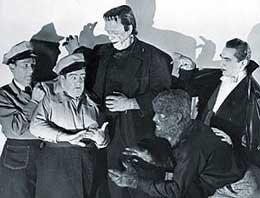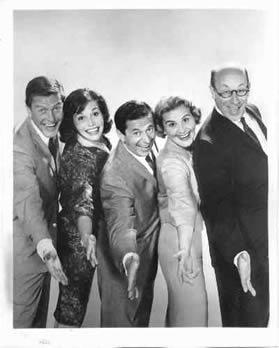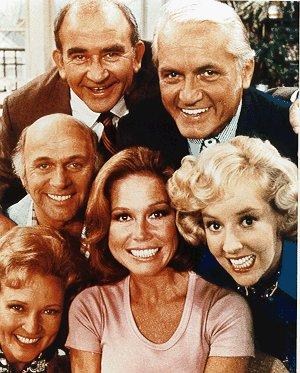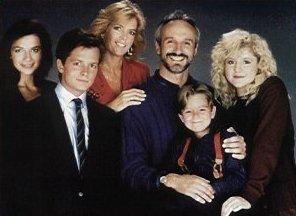




by Christofer Nigro





Contact:
powerofthor2011[AT]gmail[DOT]com
Okay, the $64,000.00 question any self-respecting creative mythographer may raise when confronting the topic of this essay is: Why bring sitcom characters and their wacky life scenarios into the Wold Newton Universe [WNU]? Why not leave it entirely to the pulp heroes, and those few “wolded down” super-heroes who may fit in thematically? And, of course, maybe those Western heroes, cop show heroes, sci-fi heroes (like Buck Rogers and James T. Kirk), or detectives who would normally be considered “in theme” for such a reality? Why, for the love of whatever Deity conception you may worship, would anyone want to bring sitcom characters into the pulpish and noir-ish world of the Newtonverse? I mean, aren’t the typical experiences and basic tone of the sitcom and comedic characters rather incompatible with the pulp/noir world?
My answer to the above metaphorically fiscal-themed question is: Why can’t they be compatible? Why can’t Ralph Kramden and Lucy Ricardo inhabit the same world that Doc Savage and the Shadow call home? I mean, is there truly no precedent for such theme-disparate characters interacting in accepted WNU canon before? Actually, there is. But when it did happen, did those occasions not turn into proverbial train wrecks that pretty much prove you can’t mix themes and genres in that fashion? Didn’t they justify the arguments of the “keep the WNU purely pulp” advocates amongst our esteemed parascholars? Actually, many of them didn’t.
Let’s visit a few good examples that prove, when handled correctly and with respect for the characters from each thematic genre, such mixtures can at times work rather well. Ultimately, I believe, this can be used to make a case that characters of disparate themes and genres can comfortably co-inhabit the same world. Which is exactly the case I am composing this essay to make.
Abbott and Costello Meet Frankenstein. That little cinematic gem has long been accepted as a part of WNU canon, and it’s always held a special place on Chuck Loridans’ classic MONSTAAH site, which he graciously passed to yours truly to carry on at my request; and which is now the “brother” site to this one (plug, plug, plug!). This movie was nothing less than a canonical source which proved that the Fat and Thin Bumblers and the Universal Monsters could—and did—inhabit the same world, and could have an awesome mash-up with each side of the genre fence maintaining respect for their individual integrity. But could this example be considered that rare exception to a much-respected rule that characters embodying comedy; and those embodying dark noir, horror, “serious” adventure, etc., ordinarily go together about as well as vampires (of several strains) and sunlight? Or, maybe about as comfortably as matter and anti-matter?
No, I say. Because the great success of that particular crossover, not only of characters from separate franchises, but characters from completely separate genres altogether, indicates that each film (and possibly certain TV skits) that are part of the Bumblers’ canon occurs on the same world that is part of the accepted Universal Monsters canon.
Then, we have the memorable crossover between the serious crime drama Maxim and the sitcom Here’s Lucy in the late 1960s. Much more recently, we got the highly revered crossover between two shows both dealing with law, but each carrying a thematic tone that couldn’t possibly be further from the other: Ally McBeal and The Practice. In the realm of music videos, we had the bumbling Fat Boys run into—and away from—the classic horror icon, Freddy Krueger of the dreaded Elm Street in the dreadful town of Springwood, as depicted in the much fondly remembered “Who’s Ready for Freddy?” video. And hell, we had Mulder and Scully from The X-Files meet the silly crew from The Simpsons! And in the comic book medium, we had a crossover of characters from extremely diametrically opposed genres: The ruthlessly dark, homicidal, remorseless, gun-wielding vigilante known as the Punisher with the wholesome, always family-friendly, idyllically suburban, all-American boy named Archie Andrews and his motley but good-natured crew shared a story that was a surprising bit of pure four-color gold that worked far better than anyone thought it had any right to. So the Punisher and Archie and his crew from Riverdale could inhabit the same universe!
In other words, these oddball, opposite polarity thematic crossovers worked. And perhaps most importantly, they actually made us believe that characters of such different thematic tone could inhabit the same reality, just as we often marvel that periodicals like Playboy and The Watchtower could possibly co-exist in the same reality (the one outside our window, in case you were wondering).
Okay, but this leads to an important question, one which will form perhaps the very crux of the Wold Newton Beyond [WNB] concept: How could characters who routinely experience generally light-hearted, often silly, frequently outlandish, and outright comedic situations share a reality with other characters whose world is dark, bleak, and filled with bloody violence, brutal death, and generally nightmarish scenarios? The short answer: Read on for the long answer.
Here is my theory. And it extrapolates from a strange but scientifically acceptable theory in the actual world outside our window—and even the actual cosmos outside our stratosphere, in which our world is a mere mote of dust within. That is the covert but pivotal world of the quantum level of existence that regulates probability, which in turn influences events in the lives of everyone who dwells in this universe. And it’s based upon a startling but valid scientific postulation in the Real Universe [RU--i.e., the only universe we think of as "real" because we happen to live in it]: The sub-atomic realm of quantum mechanics is affected, often subtly but at times dramatically, by consciousness—particularly the consciousness of sentient beings. And this leads to what I call the quantum matrix, which can be defined as the blueprint of a reality built on a universal foundation where diversity is a major requirement. Hence, different individuals can have a natural psychic aura about them that effect the immediate quantum matrix—or “tone” of reality—around them. They tend to “attract” certain, specific situations and individuals with comedic “tones” into their lives on a regular basis. And this will, in turn, cause individuals who share their lives to experience the same type of life scenarios of the person or people in their midst who are basically a quantum magnet for certain experiences.
Okay, can I explain this in something akin to layman’s terms? I believe I can. Simply put, there are many individuals who have a specific psychic aura about them that causes them—within varying degrees—to affect the immediate quantum matrix around them so that they, and others who share their lives—either often or for a specific occasion—will experience events and scenarios that tend towards the “funny.” In other words (again), these individuals and those around them will affect probability in such a way so that their natural life experiences will occur in outlandish, wacky, and truly comedic ways that will come off as humorous and amusing to many distant outside observers—though not bloody likely to most who were caught up in these situations directly! Such individuals are often what we would consider otherwise mundane individuals holding unspectacular jobs whose lives are notable because of the truly zany tone that common (and sometimes not so common) life experiences take around them.
This psychic aura also tends to unconsciously cause certain scenarios to play for these same individuals on a recurring basis, people who routinely experience them do not seem to be aware of their unusual nature no matter how many times they occur. These types of scenarios, first noted in various “comedic” incidents recorded by Shakespeare in his classic plays like Much Ado About Nothing and The Comedy of Errors, include such typical event tropes as:
1) the Wacky Misunderstanding (you overhear someone talking about a minor little thing, and come to the mistaken conclusion that something far more outlandish is occurring);
2) the Double Entendre’ (someone overhears people talking about something inoffensive, but their specific and poorly chosen words are misconstrued to convince the eavesdroppers that sexual incidents are being discussed or alluded to);
3) Loose Lips (someone inadvertently says something potentially incriminating based not on what they wanted to say, but rather due to something they heard a few moments earlier that remained stuck in their mind—like two people having a serious private discussion that one of their friends may be a kleptomaniac, and when the friend in question shows up unexpectedly a moment later, one of the two having the discussion accidentally calls her “Klepty” instead of her real name, this almost giving away the subject of the conversation);
4) the Harebrained Scheme (the tendency to resort to often elaborate and always outlandish play-acting scenarios to deceive a guilty party into admitting something they are keeping secret, or to trick them into displaying incriminating behavior);
... and, 5) the Gender Reversal (the tendency for individuals who regularly experience “comedic” circumstances to find practical reasons to dress up as, and to actually pretend to be, a member of the opposite gender, often as part of a Harebrained Scheme or as an attempt to deceive someone).
Not only that, but certain individuals who have this Comedic Aura about them will naturally affect probability to attract opposite extremes of luck around them, usually in the same direction of progression: bad luck-to-good luck. More specifically, they will regularly experience incidents with a clear overtone of “bad luck” that routinely causes wacky, non-beneficial, and nerve-wracking situations to spring up around them, which often result in severe personal and/or professional problems to ensue. However, they tend to occur in such a way that would be considered “funny” and entertaining for those watching from a distance who were not directly caught up in the chaotic, Trickster-ish events themselves. But within a few hours to a few days from that point, the comedically afflicted individuals will subconsciously affect the probability field around them in a compensatory manner so as to create a type of “good luck” that tends to usually neatly resolve the situation in their favor, thus restoring broken friendships, romantic relationships, or professional positions that were ruined by the previous, scenario-catalyzing bit of “bad luck.” And when occurring with such regularity, it appears that the lives of these people never have what we might call a “dull moment,” even if they often cause severe distress to the unfortunate schmucks regularly and directly caught up in such scenarios.
The degree of outlandishness, and the specific types of outlandish situations/scenarios regularly encountered, will vary to a noticeable extent amongst different individuals who seem to have this unconscious, psychic tendency to manipulate the probability fields in their immediate vicinity. This can explain, for example, why some of these people with a Comedic Aura semi-regularly encounter the various paranormal forces that are extant in the WNU, while others almost never (if ever) do.
Of course, these individuals with that strange but apparently pervasive type of probability-altering aura will affect the quantum matrix around them in other ways, too. Let’s go back to the two Bumblers and the great comedy/horror genre mash-up of Abbott and Costello Meet Frankenstein for another good example.
Note how certain individuals with an extreme type of Comedic Aura, like the Bud and Lou duos who make up the generational Fat and Thin Bumblers (or simply “Bumblers,” for lazy typists) in any given era, will regularly experience commonly recurring tropes in their day-to-day lives.
Before I get to the example, I feel it relevant to mention that I’m indebted to my friend and colleague Robert Wronski Jr., and his highly influential website/blog Television Crossover Universe, for conceiving the version of the Bumblers that I adhere to for the Wold Newton Beyond Universe [WNBU]. First, if you haven’t already, read all about the Fat and Thin Bumblers here on this timeline post, courtesy of Rob. Note that while the TV Crossover Universe [TVCU] is not the same reality as the WNBU (if you prefer to consider it an alternate version of the “consensus” WNU), I nevertheless believe that certain rules, tropes, events, and origins of various characters common to both realities overlap in similar fashion.
With that said, keep in mind that these generational Bumblers seem to have a natural genetic proclivity for developing the subconscious psychic capacity to affect the quantum matrix around them, saturating their immediate environment—and the scenarios that tend to afflict all within that close vicinity—with events that tend very much towards the wacky, bizarre, outlandish, and flat out funny to those who may be watching from a distant vantage point (like, yanno, the TV set in the RU). Not only that, but both Bud and Lou of the many generations of Bumblers in their lineage appear to have a psychic ability that Rob referred to as dumb luck in one of our conversations, which pertains to a specific phenomenon that always seemed to recur around them.
To make this unconscious and involuntary ability clear, let’s focus on one specific but notable example from the example I just referred to. Many found it incredulous that in the memorable hotel scene from Abbott and Costello Meet Frankenstein, Lou (then under the guise of Wilbur) was being stalked by the Wolf Man, who was attempting to pounce on him and claim him for the evening kill, in a confined space, with the seemingly hapless porker never even aware that the lycanthrope was ever there in the first place. The usually cunning , fast, and agile werewolf kept strangely stumbling, getting hit by closing doors, and basically slipping up every single time the feral beast attempted to grab Lou and go all medieval on him. This seeming incompetence in killing was very uncharacteristic of the Wolf Man, and these mishaps tended to conveniently happen at just the right time to allow Lou to avoid getting the monster’s claws and fangs sunk into him. But why did these convenient and atypical lupine bumbling errors occur? How could a series of such uber-convenient coincidences happen to spare the life of the very incredulous chubby guy?
Well, that’s because these uncharacteristic mishaps on the part of the Wolf Man were not coincidences. At all. As Rob described it to me during an online conversation, Lou and Bud (and many of their genetic predecessors and descendents) clearly have a rare psychic ability that enables their consciousness to involuntarily affect the probability field around them so as to project a chaotic sort of “bad luck” on any individual attempting to inflict lethal harm on them—even when they aren’t directly aware of the specific circumstances around them that serve as a catalyst for it. This certainly doesn’t prevent bad luck in general from befalling these guys, nor does it prevent them from being slapped, punched, or otherwise having pain or embarrassment inflicted upon them by others with impunity at times; in fact, their Comedic Aura more often than not actually draws these types of painful, humiliating situations to them. But when it comes to outright potentially lethal or at least severely injurious acts being inflicted on their person, a compensatory type of probability alteration occurs in their immediate vicinity that results in a very quick, quantum-level manipulation of the environment around them that spares them from suffering from severe injury or death in situations that would very likely result in one or the other for the great majority of individuals in the world.
This type of “dumb luck” is similarly possessed by others possessing an extreme type of Comedic Aura, which as noted above results in truly bizarre, outlandish, and funny events to occur around them, with the probability field allowing scenarios to come about that the average person rarely, if ever, directly experiences—though on a regular basis. Since an early death or severe maiming would be the logically expected end result of such a Comedic Aura, the involuntary psychic ability of “dumb luck” exists to make it likely that they will escape severe injury or death due to the prevalence of wacky situations with a high degree of potential lethality no matter how often they experience them.
This ability is also possessed by the immortal bumbling trio known as The Three, and many of their progeny. Descended from the Stone Age immortals often referred to as Ollu and Buzsla, who were first identified by the influential creative mythographer Dennis E. Power in his immortal online article appropriately called Immortal Befuddled—the Wold Newton Beyond Universe [WNBU] also closely follows the origin and history of their counterparts in the TV Crossover Universe [TVCU], as described by Rob Wronski in this blog timeline. Hence, the WNBU timeline will preserve the existence of Ollu and Buzsla while also simultaneously incorporating Rob’s extrapolations of The Three. How the recent movie version of The Three Stooges with its clearly defined origins of this trio of rambunctious Bumblers fits into the mix will be the subject of another article (forthcoming at this writing).
In all of the various Three Stooges shorts, you will see numerous examples of the trio’s “dumb luck” at work, just as you will see it often activated in life-threatening crisis situations for the various Fat and Thin Bumblers. But a good example of individuals whom I theorize to be descendents of The Three from the late 20th century that utilize this ability effectively but unknowingly is the WNBU version of the trio known as the “Fat Boys.” This corpulent trinity of musically inclined, clownish dudes from the Newtonverse appear in films such as Krush Groove; Disorderlies; and the classic music video “Are You Ready for Freddy?” Like many such Bumblers, they seem to take on a rapidly changing succession of occupations and identities once they leave their secondary education. They also seem to have a powerful psychological co-dependency on each others’ constant company. In other words, they appear to have some sort of strong empathic bond with each other that results in their rarely leaving each others’ company no matter how much they frequently get on each others’ nerves, or no matter how often the alpha of the group may physically and mentally abuse the other two. They even tend to sleep together in a single bed! (Likely not a practical option for the rotund Fat Boys.)
Okay, now let’s briefly focus on the example provided in the events experienced by the Fat Boys in the “Are You Ready for Freddy?” music video. Note how a reference in the early framing sequence strongly implies that there is a familial connection between one of the Fat Boys and the infamous Krueger family, even if a fairly distant one (again, to be explored in a future essay). Notice how, as per a theory of my friend and colleague Kevin Heim, Freddy Krueger seems to utilize music and the psychic resonance it has with the Fat Boys, coupled with the energies imprinted on a home owned by the demonic serial killer, to pull himself out of his usual habitat of the Dream Dimension and into the physical waking world. Having manifested thusly, he seeks to deal with the intruders in his home by killing them. As they possessed no formidable physical abilities, Krueger seemed to have pegged this trio as easy kills even sans the seeming godlike power he possesses in the Dream Dimension. But what Freddy didn’t seem to anticipate is the trio’s psychic propensity for “dumb luck,” thus insuring that Freddy was uncharacteristically inept and clumsy in his attacks on individuals who are not themselves known for being agile, courageous, or particularly cunning in any fashion. As a result, Freddy had to settle for chasing them out of the house and thus disinheriting his relation from ownership of the abandoned property, since he seemed totally unable to shed any actual blood.
Thus, as is typical for Bumbler characters, this trio suffered the psychic dichotomy of having sufficient “bad luck” to prevent them from getting ahead of their usual status by inheriting a huge house, but summoning sufficient compensatory “dumb luck” to keep them from getting seriously injured or killed despite having a notoriously deadly and undead serial killer trying his best to slash them to pieces with his trademark finger blades.
One final consideration to make my case for the inclusion of sitcom characters amongst the ordinarily “serious” heroes, detectives, police, and other noir-ish personages known to inhabit the WNU: The human population quotient of the Earth in the WNU is probably comparable to the actual world outside our window. The “relaxed” laws of physics and rules governing the manifestations of the paranormal can and should be expected to be displayed in a variety of fashions. Amongst the roughly six billion inhabitants of that world, are we to assume that all of those vast numbers of people who are not part of the pulpish/noir-ish or generally dramatic elements allowed by the rules of that reality cannot be atypical in an entirely different fashion? Can these “relaxed” physical laws not allow for quantum discrepancies that grant some families or groups of people a propensity to regularly experience scenarios that would appear to have comedic overtones? Such people obviously would not regularly interact with the pulp heroes or other personages whose lives tend to take dramatic overtones than any truly mundane individuals, as they walk in very different circles.
But there will be times when such interactions do occur. When they do, the evidence seems to indicate that individuals normally experiencing a dramatic overtone in the scenarios they experience can have brief—but occasionally frequent—interactions with individuals whose personal quantum matrix tends towards a comedic overtone, with both parties maintaining their own typical integrity despite the seeming co-mingling of quantum forces. Long story short: Individuals with radically disparate quantum signatures can co-exist in the same locality, with neither matrix being seriously compromised. People do not tend to normally “attract” individuals or scenarios of disparate quantum overtones into their personal sphere of influence, but such interactive incidents do seem to happen at times. It’s possible that the chaotic elements that make up the comedic overtones require a degree of randomness to maintain their stability. As such, they do occasionally allow for individuals with such diametrically opposed quantum matrix signatures to cross paths and interact, each being affected by scenario overtones that they do not normally experience.
The same thing can be seen occurring in a different way when typically normal, mundane families and groups unexpectedly interact with individuals or groups of a more extreme quantum signature, be it of a dramatic or comedic overtone.
Hence, I see no problem with sitcom characters co-existing with “serious,” dramatic, and noir-ish characters in the same universe, and without the latter in any way compromising the integrity of the former. There are some realities, like the truly lunatic Looniverse, who’s every event and nature seems primed towards the “funny” and outrageous. Nevertheless, a minority of specific individuals or groups living in realities with a basically orderly set of physical laws can possess an involuntary psychic capacity to “attract” comedic overtones to every aspect of their personal lives on a regular basis… just as there are a significant minority of inhabitants of the WNU who regularly experience dramatic, adventure- or horror-oriented scenarios that are not ordinarily experienced by the average person living in that world.
